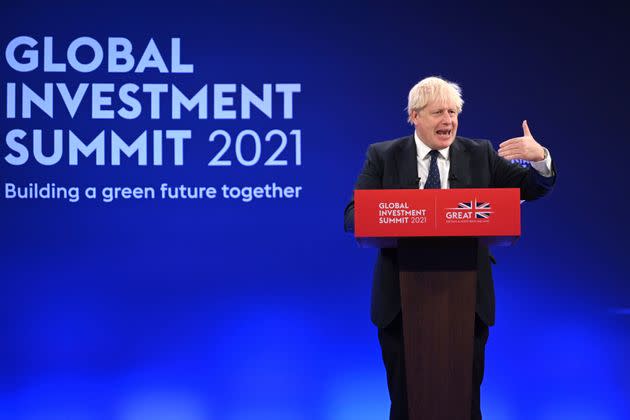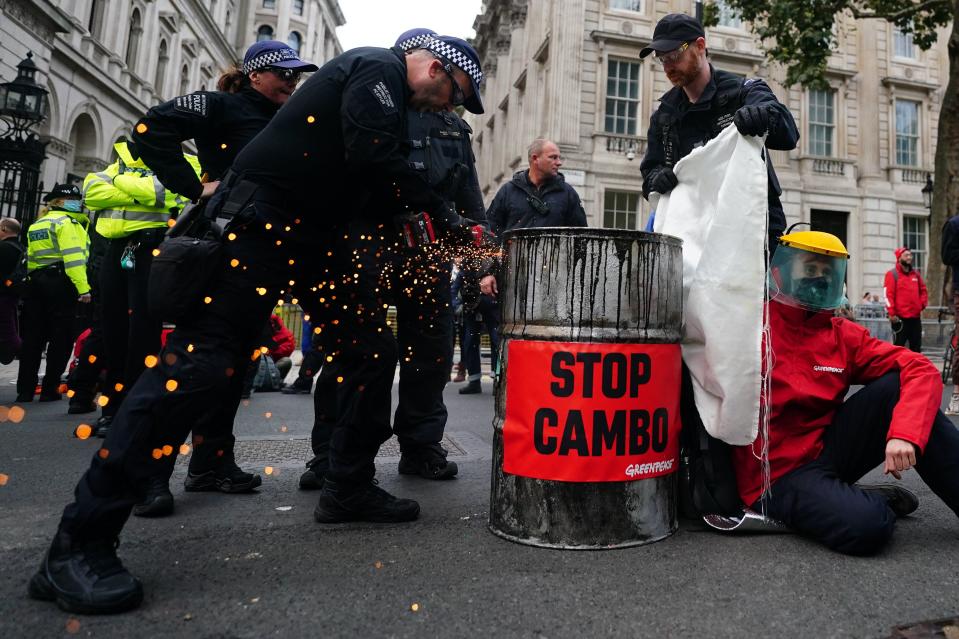What's In The UK's 'Net Zero' Climate Strategy?

The UK government has published its “net zero” strategy, which aims to drive down the country’s climate-warming emissions by offering money for electric cars, on-street charging points and planting trees, among other initiatives.
The 360-page “landmark strategy” – published ahead of the crucial UN Cop26 climate talks in Glasgow – details plans to meet legal targets to dramatically cut emissions by 2050 and support 440,000 jobs in new low carbon sectors.
What will the government do?
New investment in the plans includes £620 million for electric vehicle grants and infrastructure such as on-street charging, £500 million for innovation projects to develop new clean technologies and £140 million to help green hydrogen projects get off the ground.
A £450 million pot will give households in England and Wales grants of £5,000 to swap their gas boilers for low-carbon electric air-source heat pumps for heating and hot water, and there is a £124 million boost for creating woodlands and restoring peatland to store carbon.
And the government said it will introduce a zero emission vehicle mandate setting targets for a percentage of manufacturers’ new car and van sales to be zero emissions each year from 2024.
It is also aiming for 10% of aviation fuel to come from sustainable sources by 2030, backed with £180 million in funding.
The strategy also covers cutting emissions from the power sector, including supporting new nuclear plants, and industry, and measures to remove carbon dioxide from the air.
What will change in people’s lives?
The strategy says it will work “with the grain of consumer choice”, not forcing people to change their habits, rip out their boilers or scrap their current car. People will still be flying, eating meat, warming our homes and going to our jobs in the coming decades – but change is required, experts warn.
One of the main things that will change is the way people heat their homes, moving away from gas and other fossil fuels for heating and hot water.
For many people that will mean a switch from a boiler to a heat pump, installed in individual houses and powered by electricity, working a bit like a fridge in reverse to generate heat from the outside air, or sometimes the ground.
Travel is likely to change too. Transport is currently the biggest single source of emissions, so those will have to be tackled, and a key way to do that is switching from petrol and diesel cars to electric vehicles.
By the 2030s, new cars will all be electric, and if people have off-street parking, they will be able to charge their car on their front drive rather than having to refuel at a petrol station.
Projections by the independent advisory Climate Change Committee do not include a cut in flying, but instead a reduction in the growth in demand for flights, and the government is pushing development of more sustainable fuels.
What about food?
The strategy is silent on what some see as a key plank in tackling climate change – a reduction in meat consumption to reduce emissions from livestock and free up land for planting trees.
The Climate Change Committee says we should be eating a fifth less meat by 2030. The committee says its recommendations for curbing meat consumption are well within the government’s own guidelines for healthy eating.
How much will it cost? Who will pay?
Public investment of £26 billion has been “mobilised”, the government said, and in turn it wants to unlock £90 billion in private investment in 2030 on the way to the mid-century goal.
How much this will cost individuals and families is a big question, with the Treasury warning that the costs – and the benefits – will not fall equally among households, and policies will be needed to reduce the costs and spread the burden fairly.
The Treasury’s review of the costs of achieving net zero found it was not possible to assess the impact on individual household finances but there would be demands on public spending and a loss of tax revenue from fossil fuels such as fuel duty, which would need to be addressed.
This article originally appeared on HuffPost UK and has been updated.

 Yahoo Finance
Yahoo Finance 


